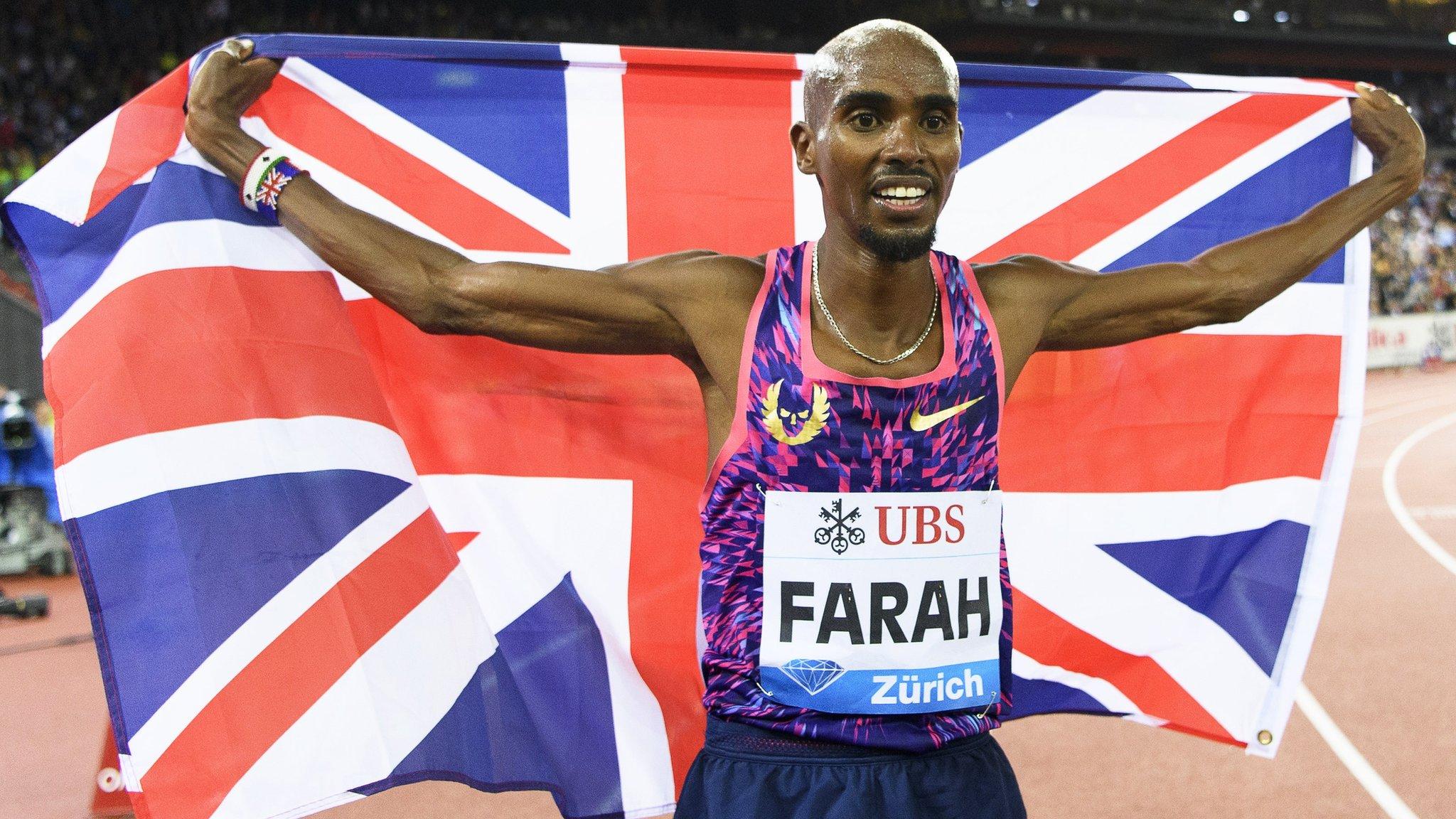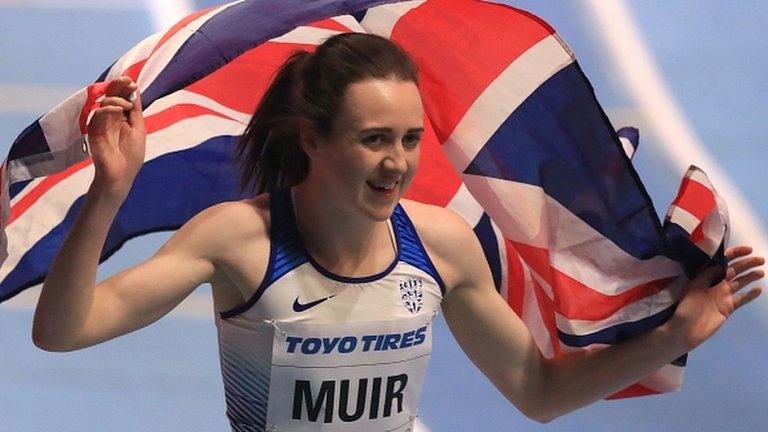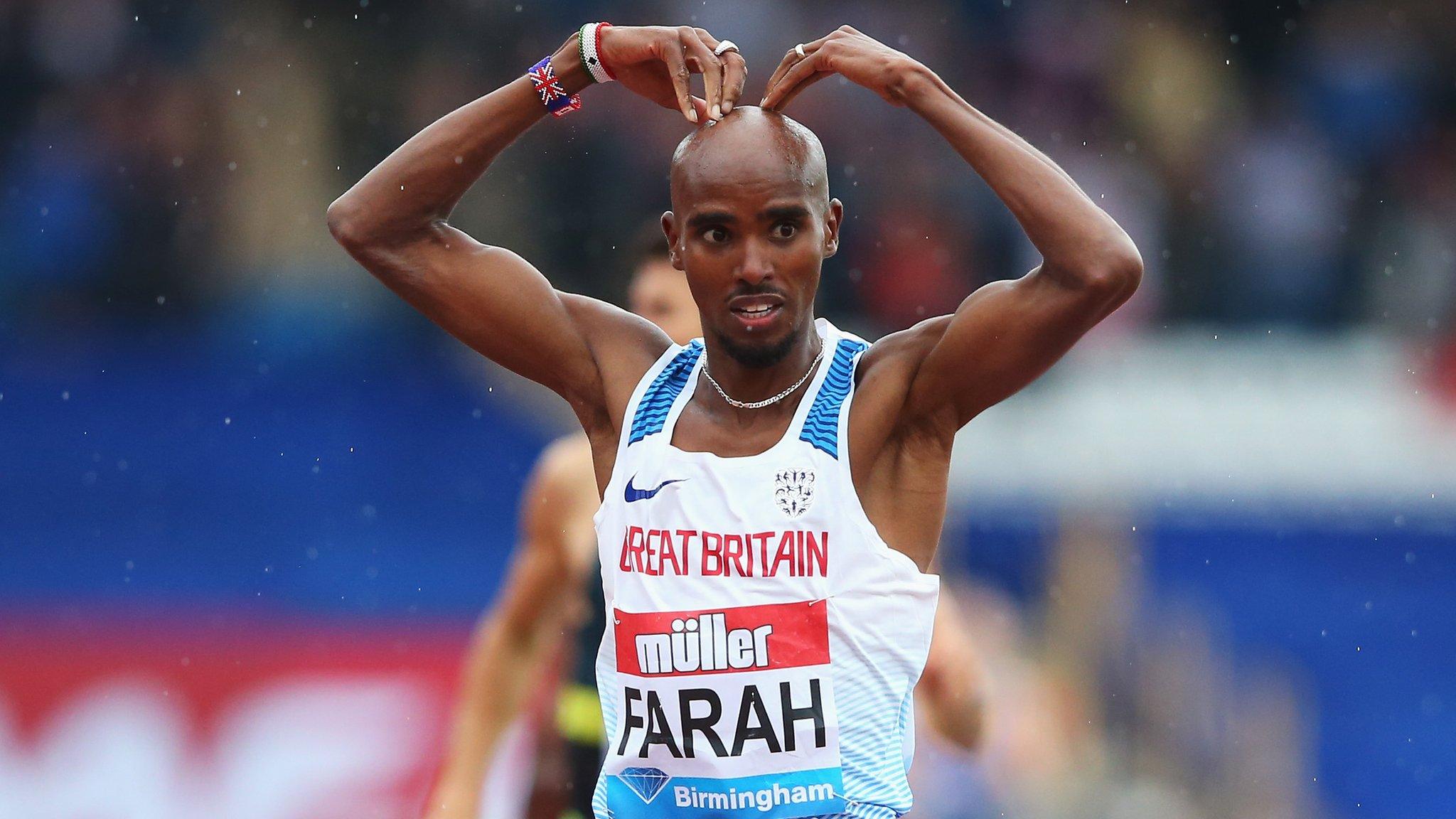Mo Farah: The stats behind his golden track career
- Published
Farah wins thrilling 5,000m in his final track race
It has been a familiar sight. The best of the rest stressing, straining and stretching in his wake, but ultimately unable to reel in Mo Farah.
It played out again in Zurich on Thursday night as Farah took revenge on Muktar Edris - who inflicted a rare defeat in the World Championship 5,000m final earlier this month - to take the Diamond League title and $50,000 (£39,000) in prize money.
But we won't see it again, at least on the track.
Farah's victory in Switzerland marked his final race before the 34-year-old turns his attention to the road and the differing challenges of the marathon.
As he heads for the tarmac, BBC Sport takes a look back at the Briton's glittering journey and the secrets behind his track success.
How far?
A long way. However you cut it.
Since the start of 2006 - his breakthrough season - Farah has run 693,864m on the track.

Farah's track career has taken him the equivalent of a seven-hour motorway drive
That equates to just over 430 miles, further than the distance separating Plymouth and Newcastle.
Or 1,734 laps of the track.
Or maybe, when you have racked up the training mileage Farah has in his career it seems like small fry.
A Runner's World article in 2014 - admittedly the year that Farah concentrated on marathon, external - detailed a typical training week for Farah.
It clocked in at 126-135 miles a week, meaning the distance covered in his 11 years on the track would be outstripped by a single month's work behind the scenes.
What has he collected along the way?
Like the opposition on the track, Farah has long since left his domestic rivals behind in the record books.
He has 10 world and Olympic gold medals.
By that measure, no-one else comes close.
Dame Jessica Ennis-Hill has four after a recent upgrade to gold, while Jonathan Edwards, Daley Thompson and Christine Ohuruogu have three.
Linford Christie has two, as do greats such as Dame Kelly Holmes, Sally Gunnell and Lord Coe.
Instead you have to look to global greats to put Farah's medal haul in the shade.
Usain Bolt, Allyson Felix and Carl Lewis have all benefited from relay medals that were never on offer to Farah.
On the other hand, some of history's greats did not have the chance to win world medals at all, with the championships having only been founded in 1983.
In terms of time, Farah is only the 16th fastest man of all time over 10,000m and the 31st fastest man of all time over 5,000m.
But when it mattered in major finals, he delivered.
How did he do it?
Farah's modus operandi has been always clear - hit the bell in contention and then prove stronger and faster over the final 400m than anyone else.
What has been extraordinary is Farah's ability to maintain that devastating last-lap speed over so many years.
Across his 12 global finals - including his silver medals in the world 10,000m in 2011 and world 5,000m in 2017 - Farah's last laps have consistently been lightning quick.
"Farah's last four 100m sections in the Rio 5,000m final were 13.6, 13.0, 13.3 and 12.8 seconds for a total of 52.7," says BBC Sport's athletics statistician Mark Butler.
"Not bad for someone who could only clock 12.98 seconds from blocks behind Anthony Joshua and Robbie Grabarz in the 100m race at the 2012 edition of 'Superstars'.
"It's worth noting that he was able to produce that sort of speed way before he joined up with coach Alberto Salazar.
"At the 2006 European Cup in Malaga, Farah completed the last lap of the 3,000m in 52.21.
"In Zurich on Thursday night, 11 years on and over the longer distance, he produced a 52.61 final lap.
"Along with Farah's tactical acumen, no-one else can generate that sort of speed when global golds are at stake."
- Published24 August 2017

- Published3 March 2018

- Published20 August 2017
